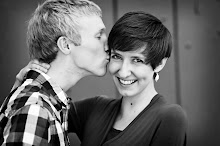In our learning, we are all like scientists. We create (or construct!) a model in our mind based on whatever information or experience is available to us. Then we act as if it is true until we discover a contradiction, and at this point we revise our model until it again fits with experience. This process is ongoing, and as such there is never a point when we are not learning; whether or not our sensory experiences oppose or support our theories. Another implication of constructivism is, because knowledge is built from experience, that there may be many different models of the same concept in a classroom . Knowledge cannot simply be transferred from teacher to student, students must build it from information provided them. If we are to be believers in this theory of Constructivism, then we know that there is no “truth” out there, just a set of theories that have not yet been contradicted.
My first thought about applying constructivism in our schools is this: “If we are never sure if our knowledge is correct or not, who are we to be the teachers?”. Then I decided that this discussion would probably not be very helpful, so I have decided to talk instead about feedback. If students are to be able to learn, they must be able to test their theories and concept models against “truth” (or whether it agrees with our supposedly more complete knowledge) and it is our job as educators to provide them with the opportunity to do so. This will be most effective if done promptly, while the construct is still fresh in the student’s mind.
